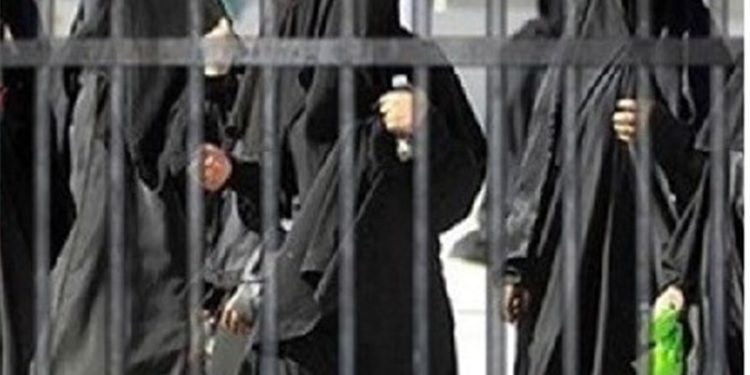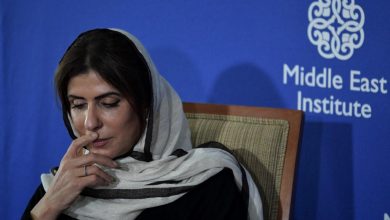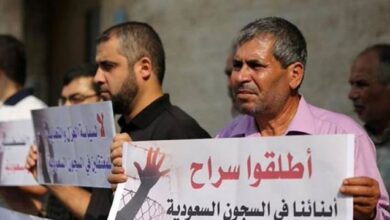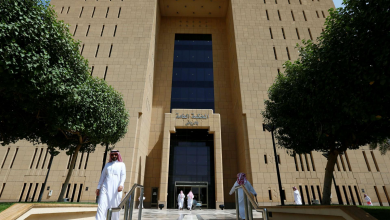Unfair trials of prisoners of conscience, and rejecting human rights monitoring

Al-Qastas for Human Rights stated that the Saudi authorities held a secret trial of female prisoners of conscience two days ago, without allowing any external monitoring.
The organization stated that “at the trial session of female activists in Riyadh, the competent court in Riyadh did not allow foreign observers to attend the session that was supposed to be for several women activists.”
And it comes to the trials of detainees of opinion, Nassima Al-Sada, Nouf Abdulaziz and Samar Badawi.
Several international organizations have previously revealed that a number of human rights activists and defenders have been subjected to torture and sexual harassment in detention centers, and many forms of psychological torture and ill-treatment during their detention and interrogation in Saudi prisons.
The crackdown on women’s rights activists began weeks before the long-awaited ban on driving cars was lifted, an issue that many detained activists have demanded.
The authorities have accused the prisoners of conscience of serious crimes, including suspicious contact with foreign parties.
Human Rights Watch, for its part, told an international human rights organization that the torture of Saudi women activists included electric shocks, skin on the thighs, and forced hugging and kissing.
It also reported that masked Saudi investigators had tortured women during the initial stages of interrogation, but it was not clear whether they were seeking to force them to sign confessions or that this was merely to punish them for their peaceful activities.
The organization said that physical signs of torture appeared on the women after the investigation sessions, including difficulty walking, involuntary hand tremors, red marks, and scratches on the face and neck, and that he had monitored one of the detainees who attempted suicide several times.
Human rights organizations said any brutal torture of Saudi activists will have no limits in the brutal Saudi authorities’ crackdown on critics and human rights activists, and any government that tortures women because of their demands for their basic rights must face severe international criticism.
According to the sources, the arrests targeted human rights defenders who demand and defend the rights of women and the overthrow of the guardianship system, as well as prisoners of conscience who are demanding an end to human rights violations, reform of the system of government in the Kingdom, and the application of human rights principles to citizens.
Amnesty International has expressed this situation, that “the presence of human rights activists today in Saudi Arabia is at risk of ending, as they are disappearing one after another.”
In the same context, two British lawyers called for the suspension of Saudi Arabia’s membership in the United Nations Human Rights Council due to human rights violations, including the arrest or enforced disappearance of 61 people since September 2017.
The Kingdom does not recognize several major international covenants, including the International Covenant on Civil and Political Rights and the International Covenant on Economic, Social and Cultural Rights, and the Kingdom has not ratified the International Convention on the Protection of All Persons from Enforced Disappearance.
Saudi Arabia, with its systematic violations of human rights, reveals the true face of it as a Kingdom of terror, chasing those who express their opinions and their opposing positions to it, even the silent ones, as silence is evidence of condemnation of dozens of personalities, especially the arrested clergymen, such as Salman al-Awda, and thus “to express your opinion Freely in Saudi Arabia means that your fate is imprisoned, perhaps without your family knowing anything about you. As a violation of enforced disappearance, Saudi Arabia criminalizes various international instruments.
International and human rights organizations expressed concern about this violation of humanity and demanded that Saudi Arabia immediately release detainees, improve their conditions of detention in accordance with international standards, laws and treaties, reveal places of detention of people who were hidden by the Saudi authorities, indicate their places of detention and transfer them to court to subject them to fair trials in accordance with the law.





